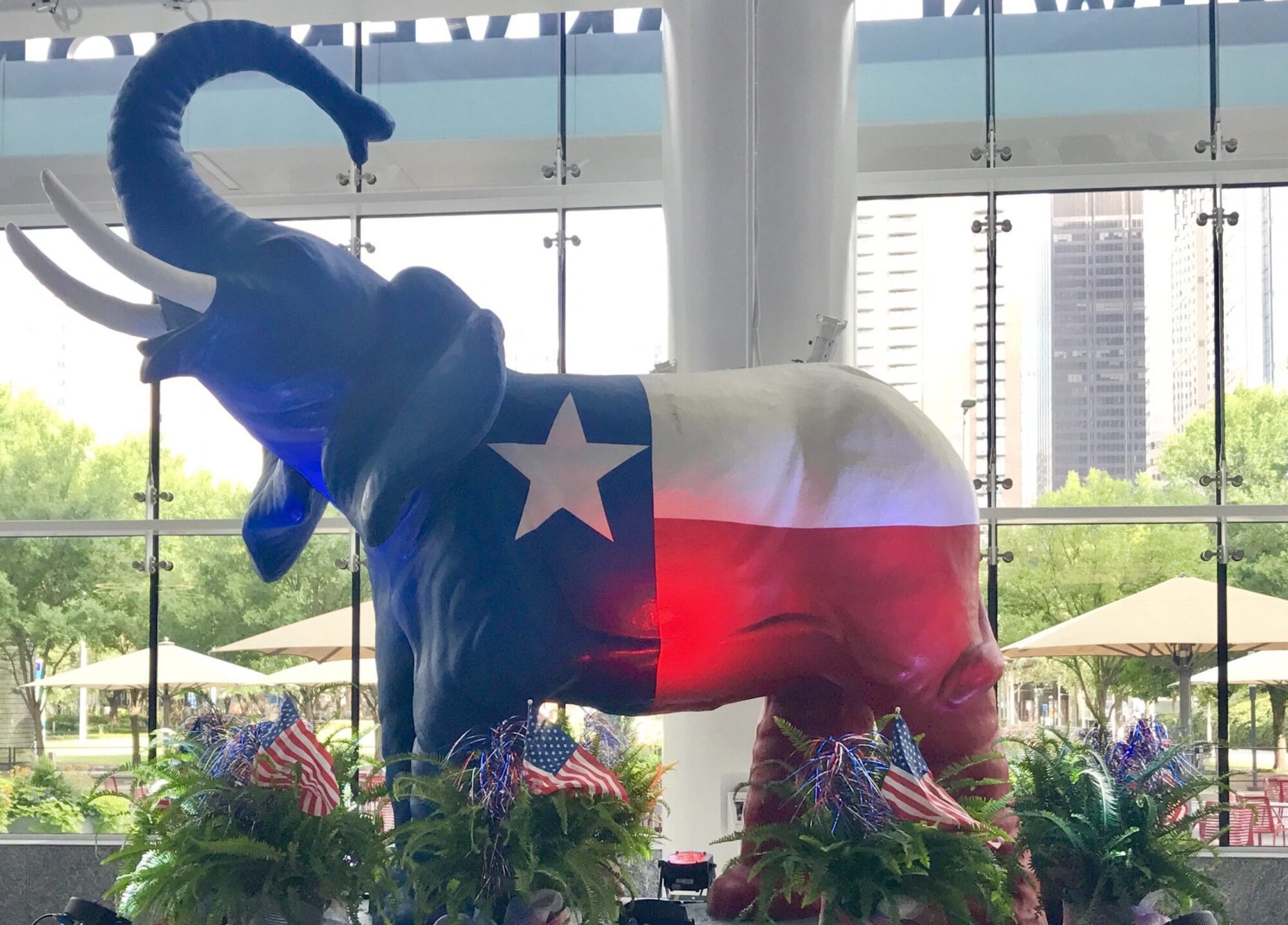The following is a (nonexhaustive) list of what made it through the 140-day legislative session.
The 87th Legislative Session began on January 12 with the backdrop of a global pandemic, the notification of delayed census data for redistricting, delayed primary elections in 2022, and the remnants of a contentious presidential election.
Leadership’s Lack of Priorities Leading Up to the Legislative Session
The lead-up to this legislative session was notable, given that there was little clarity as to what state leadership intended to prioritize.
It was not until February 1 that Gov. Greg Abbott announced his emergency legislative priorities in his biennial State of the State address. These priorities initially included the expansion of broadband to rural and unserved areas, preventing local governments from defunding law enforcement, bail reform, election integrity, and liability protections for businesses from COVID-19 related lawsuits.
In the wake of severe winter weather in February, Abbott added the reform of the Electric Reliability Council of Texas (ERCOT) and the winterization of electric generators to his list of emergency items.
Notably, even though the Legislature had the ability, they decided not to consider any of the governor’s emergency items until the legislative session was beyond the first 60 days.
Lt. Gov. Patrick announced his 31 legislative priorities on February 23. House Speaker Dade Phelan never officially announced an overarching list of priorities, but in early March, he did offer insights into priorities for responding to the severe winter weather in February. Phelan announced his healthcare legislative priorities in early April. A few weeks later, he announced his criminal justice reform priorities.
So, what got done?
COVID-19
Undoubtedly, this legislative session was unique compared to previous sessions. Much of that was due to navigating the often confusing protocols on the Capitol ground, which would affect how the general public could engage with their elected officials.
In the year or so leading up to the legislative session, a series of executive orders given by Gov. Greg Abbott created an uproar from conservative activists around the state who saw many of the orders as an egregious overstep of authority. Several of the executive orders allowed local governments to also enact burdensome approaches to the pandemic emergency. All of this led many lawmakers to attempt to reform these disputed authorities in the Texas Disaster Act on both the state and local executive levels. Several bills were filed in the House and Senate to address these reforms; the Senate was much quicker to act, while the House was seemingly reluctant to do so.
Ultimately, the sole bill to pass both chambers died, as they could not come to an agreement.
Also of note is the bill relating to preventing the use of “vaccine passports.” This bill would have banned businesses from discriminating against individuals who chose not to receive a vaccination. It was heard in the Senate State Affairs Committee on May 10 but was never voted out and ultimately died. Softer language was eventually included in Senate Bill 968, which passed with only minutes to spare before the end of the legislative session.
In early March, Abbott announced an executive order to end his own mask mandates while still encouraging individuals to wear masks. Notably, the executive order did not prohibit individual businesses from requiring employees and customers to continue to wear masks.
The House of Representatives originally adopted rules requiring masks in the chamber and public gallery, including in committee hearing rooms. As the session progressed, the House eventually removed the mask mandate.
The February Winter Storm
In mid-February, severe winter weather gripped the state, causing power outages and leaving Texans to remain hostages in their own homes. The disaster caused the House and Senate to each hold investigative hearings to come up with legislative proposals that would not only address the devastation left in the wake of the storms, but would also prevent such an event from happening again. Many Texans were left with few answers.
The Abbott-appointed chairman of the Public Utilities Commission (PUC) resigned in early March. Shortly after, the CEO of ERCOT was fired.
In mid-March, it became obvious that Lt. Gov. Patrick’s approach to the winter storm differed from that of Speaker Phelan and Gov. Abbott. In an attempt to force action, Patrick abruptly filed and pushed a bill relating to electrical pricing through the Senate, but the effort was killed in the House. This heightened tensions between both chambers.
The last remaining commissioner of the PUC resigned after a private call became public, in which he assured investors that he was working to keep their windfall safe for those who profited from the crisis.
Patrick continued to keep the pressure on by holding a press conference imploring Abbott to step in on the electrical billing issue. In late March, the House passed a package of bills addressing a series of issues ranging from reforming the makeup of the ERCOT board to creating a statewide disaster alert system.
In the end, Senate Bill 2 and Senate Bill 3 passed through the Legislature and await Abbott’s consideration. Both bills would ultimately reform who oversees the state’s power grid and require power plants to weatherize in an effort to harden them against future disasters. They also included provisions to study a statewide disaster alert system.
The Legislature also approved bills, like House Bill 4492, that would allow companies to obtain billions of dollars from state bonds ultimately paid for by electricity customers over time.
Business & Commerce
One of the most tenuous subjects to be considered in this legislative session was the proposed extension of Chapter 313 tax abatements. There were two bills filed in the House. One bill was an extension of the program for an additional 10 years. This bill ended up dying in the House due to being watered down by several amendments. The other bill sought to extend the program by an additional two years, to allow consideration in a future legislative session. It ended up passing the House but ran into resistance in the Senate. It ultimately ended up dying due to the Senate not considering the bill before a deadline.
Another tenuous subject was that of business liability protections in relation to COVID-19. This was announced as an emergency priority of Abbott and notably took a few different forms through the course of the legislative session. The House version of the bill, which ultimately died in the House Judiciary & Civil Jurisprudence Committee, seemed to subject businesses to new regulations, including controversial directives by federal entities like the Center for Disease Control (CDC). The Senate version ultimately did pass through the Legislature; notably, it still included many of the controversial provisions exposing business owners to civil liability if they do not adhere to pandemic guidance from federal health authorities.
The No. 1 emergency priority of Gov. Abbott was the expansion of broadband services to rural and underserved areas of the state. This priority took a few forms through the legislative session, but the most prominent bill was the one seeking to create the regulatory infrastructure to enable such an expansion. When the bill passed the House, State Rep. Jeff Cason (R–Bedford) successfully added an amendment that would have required priority status to be given to broadband service providers who by default blocked access to obscene or pornographic material. The amendment was stripped out when it was considered in the Senate by the Senate sponsor, State Sen. Robert Nichols (R–Jacksonville). This prompted the House to call for a conference committee.
Eventually, on May 28, both the House and Senate adopted the conference committee report that no longer included the amendment language but instead incorporated language into a study that will be conducted on how obscene material affects Texans and the feasibility of providers blocking access to such material. The overall bill and emergency priority passed both chambers and await Abbott’s signature.
Constitutional Issues
Perhaps no other issue took as wild a ride this legislative session as that of constitutional carry, or the legislation seeking to allow law-abiding Texans to carry a handgun without a license.
In the end, eight different bills were filed on the subject. One ended up passing both chambers and is currently awaiting Abbott’s consideration.
The overall House gave approval to constitutional carry in mid-April. Shortly thereafter, Lt. Gov. Patrick indicated he did not believe there were enough votes in the Senate to pass it. Only a few days later, the Senate filed and referred a brand new bill on the subject and created a completely new special committee to consider the subject. The House version, which passed, was later referred to this new committee. The bill eventually passed out of the newly formed Senate Committee, and Patrick indicated he would bring it up for a vote on the Senate floor even though he was unsure whether the votes existed to ultimately pass it out. The bill ended up passing in the Senate in early May, but with notable amendments that many activists worried could spell defeat for the bill’s future consideration. A week later, the House and Senate appointed a conference committee to reconcile the differences. With only a few days before deadlines, both the House and Senate came to an agreement and adopted the conference committee report, ultimately sending the bill to Gov. Abbott, who has indicated he will support and sign it into law.
The Legislature also approved other gun-related bills. A bill seeking to prohibit cities and counties from enforcing federal laws regarding firearm suppressors passed both chambers and is awaiting Gov. Abbott’s signature. A bill declaring Texas as a sanctuary state for the Second Amendment passed both chambers and is awaiting Abbott’s signature. The bill, HB 2622, would prohibit public resources from being used to enforce certain exclusively federal firearms laws and regulations in the state. A bill seeking to protect firearms and ammunition businesses from governmental entities prohibiting or restricting their operations during a disaster or emergency also passed both chambers, as well as a bill to prohibit the state from contracting with companies that discriminate against firearm or ammunition companies.
Criminal & Civil Justice
A legislative priority of House Speaker Dade Phelan was criminal justice reform. By the end of the session, the priority saw mixed results. There were a few successes in this policy area, however. A bill seeking to eliminate financial barriers to re-entry of formerly incarcerated individuals is on its way to Abbott’s desk. Another bill attempting to remove arbitrary barriers for probation was also passed, as well as a bill reforming sentencing procedures for juveniles.
Education
A bill seeking to ban critical race theory from being used in public education was watered down in the Texas House before being sent over to the Senate.
While the Senate removed many of the Democrat amendments accepted by the bill’s author, State Rep. Steve Toth (R–The Woodlands), the bill appeared in peril on Friday afternoon after House Democrats called a point of order on the bill and sent it back to the Senate.
In just a matter of hours, the Senate reverted the bill to its weakened version and sent it to the governor.
The Budget
When lawmakers arrived at the Capitol in January, they were told by Comptroller Glenn Hegar that they would face a $1 billion shortfall in their budget.
While that estimate was later revised, the lack of extra revenue turned out to be a silver lining for taxpayers, in that the Legislature had little extra cash to throw to new projects and massive expansion of government, as seen in recent years.
Unfortunately for taxpayers, however, the budget agreed to by both chambers has no new property tax relief, even though property tax bills continue to soar across the state.
The Legislature also passed a bill to strengthen the state’s spending limit. As passed, the measure caps the growth of state spending at the rate of population plus inflation.
An exception is made, however, for “an appropriation to pay costs associated with recovery from a disaster declared by the governor,” as well as funds dedicated to tax relief. It also does not take federal funds into account.
State Affairs
With regards to abortion, the Legislature stopped short of abolishing the practice. They did, however, pass the Texas Heartbeat Act prohibiting abortions once a fetal heartbeat is detected. The bill went as far as to give legal standing to almost anyone to sue those who provide or facilitate an abortion anywhere in the state. The Legislature also passed a so-called “trigger” bill that would prohibit abortion in the event the U.S. Supreme Court rescinds or overturns its ruling in Roe v. Wade.
The Legislature passed a statewide ban on public camping. The bill prevents vagrant camping in public places across all of Texas and prohibits local officials from turning public parks into homeless campsites.
So, What’s Next?
A few days ago, Lt. Gov. Dan Patrick took to Twitter to call for a special legislative session. Several Republican lawmakers followed suit by voicing their support. The governor called the request by Patrick “goofy,” as he had already signaled a special session in October to address items like redistricting due to the delayed census data.
In the wake of the “quorum-busting” maneuver conducted by a majority of House Democrats to prevent a vote on the omnibus election integrity bill late Sunday night, Abbott expressed discontent with the Legislature not passing that bill and bail reform legislation that died as a result of the maneuver, as they were both emergency priorities of his.
Notable items that also did not get passed this legislative session include a ban on taxpayer-funded lobbying, protections for free speech on social media platforms, protection of monuments, protection of children from gender modification procedures, abolishing the practice of abortion, bail reform, election integrity, expanding virtual learning, protections for women and girls in sports, emergency powers reform, ending arrests for nonviolent offenses, asset forfeiture reform, expunging decriminalized offenses from criminal records, limitations on “no-knock” raids, and school choice.





